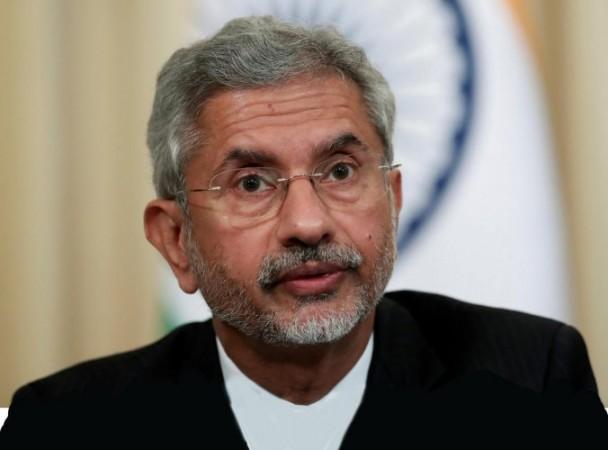
United States may not impose sanctions on India for buying the Russian Triumf S-400 missile defence system, a US State Department official said on Thursday, November 21. However, the US would require India to strengthen its defence technology to prevent snooping by Moscow.
The official, who was addressing Turkey's purchase of Russian S-400 missile defence system, did not talk about India's defence deal with Russia but addressed the security issues in cooperating with New Delhi.
The State Department also approved the $1 billion sale of advanced MK 45 5 inch/62 calibre (MOD 4) navy guns to India this week even though India had paid the Russian contractor $800 million as an advance in August for five S-400 units valued at about $5.4 billion.
What had the US said earlier?
India and US relations have been strained after New Delhi's signed an intergovernmental agreement with Russia in 2017 to acquire five 400 km range S-400 Triumf air defence system worth $5.43 billion.
The US had warned that the deal could prompt a sanction imposed on India under the Countering America's Adversaries Through Sanctions Act (CAATSA). CAATSA bans countries from buying equipment worth more than $15 million from defence Russian companies listed under it and imposes sanctions against them.
Washington had also warned Turkey, who is buying the air defence system from Russia as well, that it will deny its F-25 fighter aircraft defence deal if it went ahead with the deal.
India had earlier stated that it "cannot wish away" from its defence cooperation from its Cold War ally. Jaishankar had discussed India's stand on the deal during Mike Pompeo's state visit in June.
The sale of Navy guns and the official's response appeared to leave room for India to get a waiver from CAATSA.
The US has not yet introduced CAATSA sanctions against Turkey, a NATO partner, but has refused to provide it with the advanced F-35 stealth combat jets. India is not seeking such advanced armaments from the US at this time.
President Donald Trump warned Turkish President Recep Erdogan during his recent visit that the Russian deal is going to put it at risk of sanctions.
But the official said: "The timeline on CAATSA sanctions is not prescribed or absolute. There is still plenty of scope that could be applied as to where sanctions and the breadth and depth of sanctions could be imposed upon Turkey."
Jaishankar's confidence
Indian Minister of External Affairs S Jaishankar had said earlier in October that he was confident that the White House officials will understand India's rationale for buying the contentious S-400 missile systems from Russia amid sanctions threat.
"India has made a decision on the S-400 and we have discussed that with the US government. I am reasonably convinced of the powers of my persuasion (sic)," Jaishankar was quoted as saying by PTI.

"It would be my hope that people understand why this particular transaction is important for us, so I think of your question to me is hypothetical," Jaishankar had said during his visit to the US think-tank, Centre for Strategic and International Studies (CSIS), in Washington DC.
The external affairs minister, on a visit to the US, had defended India's defence procurement stating that the country's defence deals were its "sovereign right".
"We would not like any state to tell us what to buy or not to buy from Russia any more than we would like any state to tell us to buy or not buy from America," he had said. "That freedom of choice is ours and we think it's in everybody's interest to recognise that."
Preventing defence technology leakage
In the recent statement, the US State Department official appeared to appreciate the problems India faces in moving away from Russian defence supplies because of its decades-long dependence on the Soviet Union.
The official said that when Secretary of State Mike Pompeo and another official visited New Delhi they "had a consistent line and a discourse with our Indian counterparts at our respective levels, which is we recognize how India suffered at the fall of Soviet Union" because of its dependence on it for defence equipment.
The official added, "It was catastrophic if one was serving in the Ministry of Defence in India in the early 1990s. So we get that." The official said that India should take stringent measures to prevent defence technology leakage.
US industry and the government are interested in co-research, co-development and co-production with India in the defence sector, "but we can't do it in a fashion that will expose us as well as our industry," the official said.

"So for India, yes, there's opportunity, but they have got to address their protocols and their processes on protecting defence technology and procurement processes," the official.
"What we have pushed with Indians is: tighten up your procurement processes, tighten up your defence technology security processes and protocols, and then you're putting yourselves in a much more mature space to be a tighter, closer partner," the official said.
The official added that the US didn't want its technology "exposed because some Russians walking the shop floor decide to go, walk away and put it in their handbag or knapsack and take it back to Moscow. We're not going to allow that."
Last year India and the US signed the Communications Compatibility and Security Agreement (COMCASA) to "facilitate access to advanced defence systems and enable India to optimally utilise its existing US-origin platforms."
(With inputs from IANS.)









